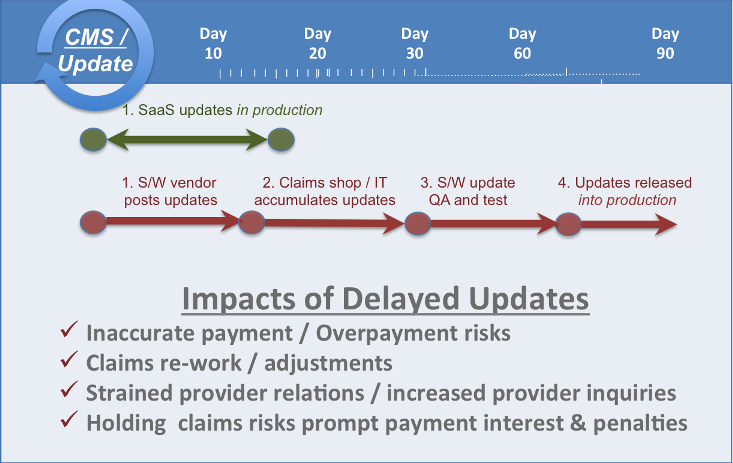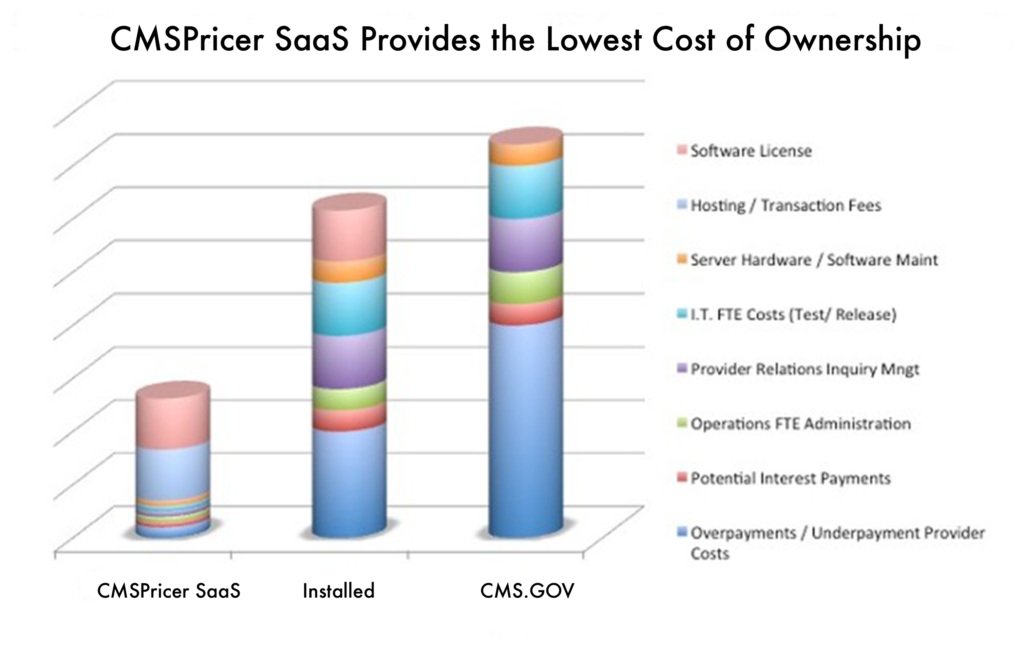FAQ’s

Frequently Asked Questions
We try to anticipate questions you might have about our service and provide the answers here. If you need additional information send email to info@cmspricer.com.
We offer three volume based tiered plans. All plans are volume discounted to offer the best pricing with highest volume. Consider your volume when selecting and add multiple plans to your cart to optimize your cost. Our system will automatically update and display your balance so you know exactly how many claims you have remaining in your account upon return. Pricing is the same for either auto batch or manual entry.

Yes. Any time any rate changes or any computational methodology (a.k.a. prospective payment system) results in lower reimbursement, and the payer continues to reimburse against the old rates or methodology, the payer is overpaying.

In short, no, because of the delays inherent within the release schedule.
CMS states on the CMS.gov website: "The final payment may not be precise due to the fact that some data is factored in the PC Pricer payment amount that is paid by Medicare via provider cost reports.
In addition, variance between actual Medicare payment and a PC Pricer estimate may exist due to a 3-month lag in quarterly updates to provider data.

The CMS PC Pricer is a tool used to estimate Medicare PPS payments.
Generating an estimate requires the user of the PC Pricer to address complexities such as hospital acquired conditions, MS-DRG grouping, NUBC guidelines and Medicare Code Edits (MCE).

While it is impossible to price exactly to CMS guidelines on the effective date 100% of the time, delays can be substantially reduced (and in some cases eliminated) by use of data and repricing tools utilizing a Software-as-a-Service delivery methodology. In those cases, the updates are made by the application and made available much faster than waiting on the CMS PC Pricer or updates to an installed software solution.
The result is improved pricing accuracy....and improved financial performance for the payer.
The following highlights the significant difference of time into production of updates and the multiple impacts on your organization.

When evaluating the cost of a repricing solution, it's critical to look at the total cost of ownership. Studies have shown that SaaS solutions provide the best overall economics while PC Pricers typically provide the worst. Conceptually, this is how the economics stack up:

CMS defines a Prospective Payment System (PPS) as a method of reimbursement in which Medicare payment is made based on a predetermined, fixed amount. The payment amount for a particular service is derived based on the classification system of that service (for example, diagnosis-related groups for inpatient hospital services). CMS uses separate PPSs for reimbursement to acute inpatient hospitals, home health agencies, hospice, hospital outpatient, inpatient psychiatric facilities, inpatient rehabilitation facilities, long-term care hospitals, and skilled nursing facilities. See related links below for information about each specific PPS on the CMS website.
